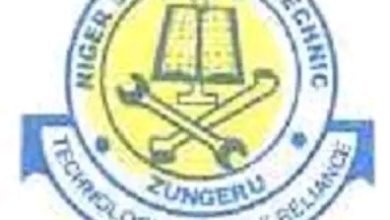Discussing the Role of Parents in the Education of High School Students in Nigeria
Parents play a critical role in the education of high school students in Nigeria. It is no secret that they are the primary caregivers who are responsible for moulding and shaping the minds of their children.
The education of a child is not confined to the classroom; it extends far beyond it. A child’s environment, support system, and guidance are crucial elements that influence their educational journey.
In Nigeria, it is essential to examine the role of parents in the education of high school students.
Background
Nigeria is the most populous country in Africa with over 200 million citizens. Despite being a developing country, Nigeria has one of the highest literacy rates in Africa, with approximately 59% of the population being literate.
However, the country faces significant challenges in providing quality education to all its citizens.
The majority of the population live in poverty, and access to education can be a struggle.
Additionally, the Nigerian education system is often riddled with issues such as poor infrastructure, inadequate teacher training, and poor learning outcomes.
With these issues in mind, it is crucial to recognise the significant role that parents play in the education of high school students in Nigeria.
It is important to understand the challenges that they face, the support that they need to provide, and the impact their involvement has on their child’s educational success.
Challenges Faced By Parents in Nigeria
Parents in Nigeria face many challenges- some financial, cultural and societal. One of the significant challenges is poverty.
Nigeria has the largest economy in Africa, but poverty remains prevalent in the country, and access to education can be a struggle.
Many families cannot afford the cost of tuition, uniforms, textbooks, and other expenses that come with sending their children to school.
Furthermore, the Nigerian education system is not free, and many high school students drop out due to financial difficulties.
Parents often have to choose between sending their children to school or putting food on the table.
Cultural and societal factors also impact the education of high school students in Nigeria.
The Nigerian society is patriarchal, and the roles of men and women are defined. Traditionally, men are the breadwinners of the family, while women take care of the home and children.
This culture often perpetuates the notion that education is not necessary for girls, and they should get married and start a family instead.
This approach to education leaves many female high school students without adequate support and guidance.
The Role of Parents in the Education of High School Students in Nigeria
Despite the challenges faced by parents in Nigeria, they play a significant role in the education of their high school students. Parents are the first teachers that a child has.
They often have a more significant impact than teachers, friends, or even the broader community.
Parents can stimulate a child’s curiosity, instil good values and principles, and provide them with mental, emotional, and physical support.
Financial Support
As previously mentioned, many high school students drop out of school due to financial difficulties.
Parents play a critical role in providing financial support for their child’s education. They have to provide for the basic needs of their children, including school fees, uniforms, textbooks, and other expenses that come along with schooling.
Parents who cannot afford these costs can seek financial aid from non-governmental organisations or other support groups.
Creating an Enabling Environment for Learning
Parents also have to create an enabling environment for learning. This involves creating a conducive atmosphere for studying, providing a quiet space, and ensuring that their children have access to necessary materials such as books and computers.
Parents can also encourage their children to participate in extracurricular activities such as sports or music, which broaden their learning experiences and enhance their academic performance.
Being Actively Involved in their Child’s Education
Parents are not only caregivers but also academic partners. They should be actively involved in their child’s education.
This involves monitoring their academic performance, managing their schedules, and attending parent-teacher meetings. Parents can also engage their children in meaningful discussions about their academic progress and academic aspirations.
Parents who cannot directly participate due to lack of knowledge or mobility can seek advice from teachers, educational experts, or other parents.
The Impact of Parental Involvement in the Education of High School Students in Nigeria
Parental involvement in the education of high school students in Nigeria has a positive impact on their academic success.
High school students whose parents are actively involved in their education tend to have a better academic performance, high self-esteem, and a positive attitude to learning.
Studies have shown that children whose parents are involved in their learning have higher-grade point averages, better attendance rates, increased motivation and a greater likelihood of graduating from high school.
In essence, parents’ involvement is invaluable to the educational success of high school students in Nigeria, regardless of the challenges they face.









